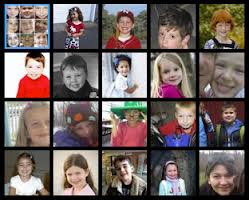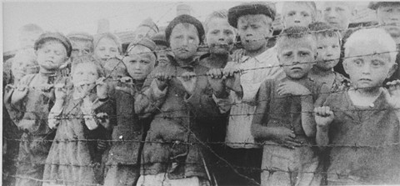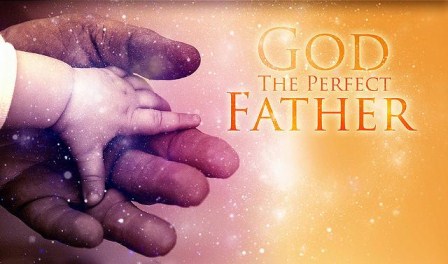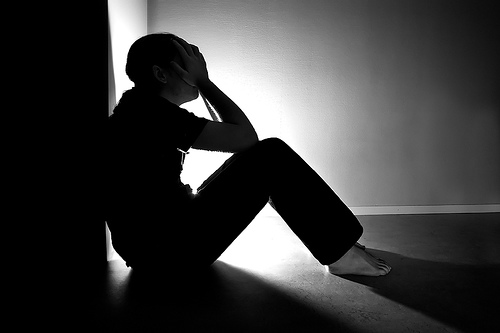
History is strewn with the wreckage of broken lives of those foolish enough to believe God really gives a damn. There are those who fall to their knees in silent, unheard prayers when suffering threatens to consume them. In the absence of reasoning, they fall back on a blind faith, a belief that there is some higher meaning behind their loss. But their faith has never been anything more than the posture of not pulling the alarm when the fires of evil begin to spread. They relinquish their involvement or complicity, their grief, to the dark void of a silent, impassive God.
Waiting for God to intervene is both foolish and tragic. Like many people, I have been struggling to align my faith (or lack thereof) with all the insidious tragedy in the world today. How is it, we doubters ask, that a compassionate and loving Father (God) allows an endless flow of hate, violence, death, and destruction to inundate our world? Where is the omnipotence conveyed in the Bible? The promises and the facts just don’t seem to come together.
How do we accept the “free will” argument of devout Christians who, in lieu of a meaningful discussion, always fall back upon stories in a Holy Book as evidence that God does not interfere in the affairs of man. The good book is full of examples of Divine intervention. He saved David from the Philistine Goliath, Daniel from the Lions, and Jonah from the whale. But He simply could not find the time to save 20 young first graders from the wrath of a scrawny, disturbed young killer in Newtown this past December.

If intervention exists, why did the children of Aleppo, Aurora, Columbine, Iraq, Syria, Chicago, Los Angeles and Joplin, MO, and even the children of the Holocaust, perish in such horrible deaths?

Why the continual absence of settling answers? Not having answers certainly does not disprove the existence of God. However, it certainly begs the conclusion that if there is a God, he is neither merciful or compassionate. If His sole purpose is merely to sift through the wreckage of mankind and pick up the pieces, this would seem to suggest that He serves more as a melancholy janitor and not the all-powerful deity we are urged to embrace through prayer and communion.
Faith requires that we enter into a relationship of God as Father and we as children.

I have to reject that offering. A true Father figure allows his children to grow by painfully sitting back and letting his loved ones learn through their mistakes, Yet he intervenes when the child is on the verge of mortal consequence. In that moment, I, as a father, would give my life to protect my children from lethal harm. But God, it appears, sits back and watches, up to and through the bloody end of it all. Sure, He sacrificed his Son, His most precious gift, so that whoever believes in Him might one day know peace and love…just not today!
Christians are quick to point out that it all comes back to the miracle of faith. They claim that to know is irrelevant and a false journey, and the only thing that matters is that we “believe” there is a sound celestial reasoning for the evils we encounter as we journey through this life. But it just doesn’t add up. Believers respond that the reason I cannot find an answer to this and similar questions of Divine indifference is because of my lack of faith. I would argue that my lack of faith stems from clear evidence that God, in allowing such horrific events to shape our lives offers a path toward reconciliation that is too great a burden for any of us to bear.
Ask the parents of the Sandy Hook shooting tragedy. Ask the Mother of the child killed by collateral damage in a drone strike in Pakistan. Ask the orphan who not only loses his biological parents, but is then placed in an abusive foster home. The examples of pain are endless. The examples of God’s alleged compassion can fit in one book.

More importantly, believers argue, while we may openly seek understanding and purpose, it is only through the power of prayer that we can even begin to approximate resolution. On bended knee, we utter our fealty to our Creator, accepting without question that He knows what’s best. We should leave off our incessant whys. And so many, including myself, refuse to accept tragedy through supplication and prayer, and continue to stand up and question.

It is somewhat patronizing to suggest that God is tolerant of our doubt and ultimately forgiving of our lack of faith. He cannot be both the architect of this grand design of free will and demanding that we surrender it at the same time in order to achieve a more perfect union with Him.

If in fact we are flawed from the cradle due to the original sin of Adam and Eve; if we are offered salvation through the sacrifice and blood of a crucified Son, why then not completely deliver us from evil today rather than offering a rain check for peace and happiness only once we expire? How is that compassionate or loving? Why do we call Him Father and not the great Procrastinator?
Proverbs 21:30 offers, “There is no wisdom nor understanding nor counsel against the Lord.” I don’t enjoy struggling with faith. I wish I could take the easy path and just turn everything over to His “voyeuristic” style of non-intervention. But I can’t. More than anything, except truth, I want to believe that this all means something. Yet, I would rather confront the evils of this world from a position of knowledge and sympathetic understanding than to close my eyes in prayer and call that a day.
Our Creator put us in a scientific world but left us with an instruction manual no better than the Ikea assembly sheets that serve only to baffle and confuse.

I do not believe, or want to believe that He is nothing but a heavenly voyeur when it comes to our pain and suffering. Unfortunately, that does seem to be where the evidence points.
I can already anticipate a Christian response for my questioning the “wisdom” of God. I will be counseled to seek Him in prayer. I’ve done that, to no avail, for 40 years. How about instead of my falling to my knees in prayer, you Believers fall to your knees and help a parent mop up the blood of his/her slain child. And please, don’t ask why. Just have faith that somehow He knows why. Your job is to accept and live with the pain.
0.000000
0.000000


















